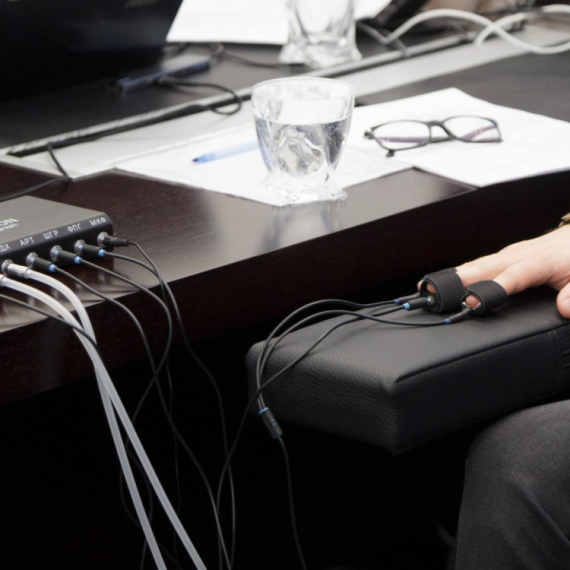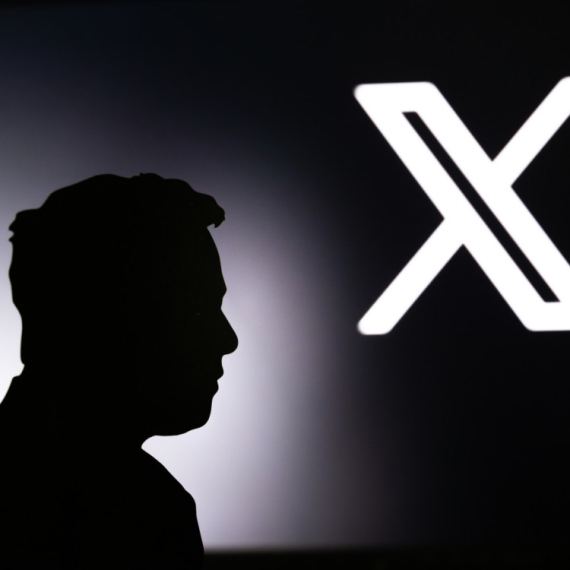Britain votes
Thursday, 06.05.2010.
14:04

Britain votes No matter if you didn't last time; no matter if you won't next time. This time: Seize the chance. Take the risk. I say this as someone who has never belonged to any political party and who, as an independent writer, intends to keep it that way. I say it as a lifelong liberal (small l) who finds elements of genuine liberalism in all the main British parties. Blair-Brown Labour has huge swathes of modern egalitarian liberalism, as well as nasty pockets of authoritarianism. On civil liberties, the Conservatives' Dominic Grieve seems to me more genuinely liberal - in the core sense of prizing individual liberty as the highest political value - than all of Labour's home secretaries put together. When it comes to clawing back some of the freedom we have lost over the last twenty years, under both Conservative and Labour governments, the Liberals are, unsurprisingly, the most liberal of them all. No other party has a Freedom Bill. Their European policy is also the best for Britain's long-term, enlightened self-interest. But this time, the individual policies are not the main issue. That's true even of the economy. There are differences between the parties as to where spending cuts and tax rises should hit hardest. There's the question of competence, on which I'd put both Vince Cable and Alistair Darling before George Osborne. But all are committed to a social market economy; all want a strong welfare state; all will have to cut public spending and raise taxes more drastically than they have begun to acknowledge. Forget all this partisan talk of 'savage cuts'. Savage cuts are what you're going to get, whoever wins. It does not stop there. Beyond paying the price for the follies of casino capitalism over the last two decades, we face the huge secular challenge of an economically booming, low-wage, high-skill Asia, and the imperative of greening our whole economy and way of life. To sustain such a wrenching economic and social transformation, over the next decade, we need a different kind of politics - with broader popular support and strategic continuity. The kind you could get, for example, with a coalition government that represents two thirds of voters rather than a Conservative or Labour government representing only one third. This is where the Liberal Democrats are pivotal. It's not the detail of their policies, nor their leader, although he's pretty good too. It's because they are the third party and, under our current system, putting a third party into the kingmaker position is the only way we're going to change that system. A year ago, with the popular reaction to the expenses scandal, some of us hoped our 'constitutional moment' had arrived. Then the light seemed to go out. I thought this was going to be one of the most boring elections of my lifetime: modernised Tories regaining power by dint of neo-Blairite spin, forward to the past. After that electrifying first television debate, the light suddenly flashed on again. All last year's energy of disillusionment with the corrupt old punch-and-judy politics of Westminster seemed to flow into the Clegg campaign, and this has become a thrilling contest. Now that light is flickering. After David Cameron's strong performance in last week's debate, the momentum is with the Tories. In my bones, I feel they might just scrape in, either with a tiny overall majority, or as a minority government, perhaps stitching up a deal with Ulster unionists. Whatever may be said for the Tories (and there is fresh thinking in some of their policies), left to themselves they will never introduce the systemic change we need. Faced with this prospect, there are two responses. One is urged on us by leading Labour politicians and the Daily Mirror, with the frankness of desperation. In order to stop the Tories, vote 'with your head not your heart'. Vote 'tactically'. There follows a long list of Conservative-Labour marginal constituencies where the Lib Dem is asked to vote labour, plus a shorter list where the Labour supporter should vote Lib Dem. The better, bolder way is to bet everything on the Lib Dems. Va banque! Let head and heart stick together. The risk may be greater, but so is the prize. We are in uncharted territory anyway. With the Lib Dems ahead of Labour in many polls, nobody knows what would be the overall effect of such tactical voting. This is now three-directional swings and roundabouts. For as long as I can remember, people have dismissed a vote for the Lib Dems as a 'wasted vote'. In this election there is no such thing as a wasted vote. Every single ballot paper will count towards the percentage figure for a party's share of the popular vote, and the spotlight is on that as never before. If, for example, the Lib Dems get more of the popular vote than Labour, but far fewer seats, the unrepresentativeness of the electoral system will be dramatically exposed. Even if this allows a Conservative minority government to slide into power, its own deficit of democratic legitimacy will be plain. Far from being the strong government that supporters of first-past-the-post voting praise, this will be a weak government. If the Tories are the largest party in both country and parliament, and would agree to a referendum on electoral reform, there would be a democratic case for a Lib-Con deal. If, however, the Tories refuse even to put electoral reform to the people of Britain, the straightest road to a new political system must be Lib-Lab. I like Will Hutton's suggestion of Labour ministers serving under a Clegg premiership, with, say, new Labour leader David Miliband continuing as Foreign Secretary. (The instant defenestration of Gordon Brown is a self-evident necessity.) The other way round, with Labour still in No 10, looks more likely but less inspiring. This coalition could introduce not just a referendum on electoral reform but also the democratisation of the House of Lords, fixed term parliaments, English votes for English laws, and other systemic changes that a modern, liberal Britain cries out for. And it would have a realistic policy for maximising our influence in Europe and the world. Since it would also have to introduce those savage cuts, it would doubtless end up quite unpopular, and the Conservatives would get their chance - though perhaps with a coalition partner. That's OK too. The goal of this great reform cannot be a permanent elective dictatorship of the consolidated centre-left. Democracy means that the people change their government from time to time. But the Conservatives would then come back under a new system, not the old. The choice, in other words, is between this being just another election and it being the election to change all elections. Vote Lib Dem, this time, and you can make Thursday 6 May 2010 a historic turning point, equipping Britain to face the world we're already in. Yes we can. timothygartonash.com Lib Dem leader Nick Clegg makes his way to vote in his constituency (Beta/AP) This time, vote Liberal Democrat. Vote Liberal wherever you can. Vote Liberal as if our life depended on it. Vote Liberal if you want a transformed politics and a modern, free country with a realistic view of its place in the world. Timothy Garton Ash "The goal of this great reform cannot be a permanent elective dictatorship of the consolidated centre-left. Democracy means that the people change their government from time to time."
Britain votes
No matter if you didn't last time; no matter if you won't next time. This time: Seize the chance. Take the risk.I say this as someone who has never belonged to any political party and who, as an independent writer, intends to keep it that way. I say it as a lifelong liberal (small l) who finds elements of genuine liberalism in all the main British parties. Blair-Brown Labour has huge swathes of modern egalitarian liberalism, as well as nasty pockets of authoritarianism.
On civil liberties, the Conservatives' Dominic Grieve seems to me more genuinely liberal - in the core sense of prizing individual liberty as the highest political value - than all of Labour's home secretaries put together. When it comes to clawing back some of the freedom we have lost over the last twenty years, under both Conservative and Labour governments, the Liberals are, unsurprisingly, the most liberal of them all. No other party has a Freedom Bill. Their European policy is also the best for Britain's long-term, enlightened self-interest.
But this time, the individual policies are not the main issue. That's true even of the economy. There are differences between the parties as to where spending cuts and tax rises should hit hardest. There's the question of competence, on which I'd put both Vince Cable and Alistair Darling before George Osborne. But all are committed to a social market economy; all want a strong welfare state; all will have to cut public spending and raise taxes more drastically than they have begun to acknowledge. Forget all this partisan talk of 'savage cuts'. Savage cuts are what you're going to get, whoever wins.
It does not stop there. Beyond paying the price for the follies of casino capitalism over the last two decades, we face the huge secular challenge of an economically booming, low-wage, high-skill Asia, and the imperative of greening our whole economy and way of life. To sustain such a wrenching economic and social transformation, over the next decade, we need a different kind of politics - with broader popular support and strategic continuity. The kind you could get, for example, with a coalition government that represents two thirds of voters rather than a Conservative or Labour government representing only one third.
This is where the Liberal Democrats are pivotal. It's not the detail of their policies, nor their leader, although he's pretty good too. It's because they are the third party and, under our current system, putting a third party into the kingmaker position is the only way we're going to change that system.
A year ago, with the popular reaction to the expenses scandal, some of us hoped our 'constitutional moment' had arrived. Then the light seemed to go out. I thought this was going to be one of the most boring elections of my lifetime: modernised Tories regaining power by dint of neo-Blairite spin, forward to the past. After that electrifying first television debate, the light suddenly flashed on again. All last year's energy of disillusionment with the corrupt old punch-and-judy politics of Westminster seemed to flow into the Clegg campaign, and this has become a thrilling contest.
Now that light is flickering. After David Cameron's strong performance in last week's debate, the momentum is with the Tories. In my bones, I feel they might just scrape in, either with a tiny overall majority, or as a minority government, perhaps stitching up a deal with Ulster unionists. Whatever may be said for the Tories (and there is fresh thinking in some of their policies), left to themselves they will never introduce the systemic change we need.
Faced with this prospect, there are two responses. One is urged on us by leading Labour politicians and the Daily Mirror, with the frankness of desperation. In order to stop the Tories, vote 'with your head not your heart'. Vote 'tactically'. There follows a long list of Conservative-Labour marginal constituencies where the Lib Dem is asked to vote labour, plus a shorter list where the Labour supporter should vote Lib Dem.
The better, bolder way is to bet everything on the Lib Dems. Va banque! Let head and heart stick together. The risk may be greater, but so is the prize. We are in uncharted territory anyway. With the Lib Dems ahead of Labour in many polls, nobody knows what would be the overall effect of such tactical voting. This is now three-directional swings and roundabouts.
For as long as I can remember, people have dismissed a vote for the Lib Dems as a 'wasted vote'. In this election there is no such thing as a wasted vote. Every single ballot paper will count towards the percentage figure for a party's share of the popular vote, and the spotlight is on that as never before. If, for example, the Lib Dems get more of the popular vote than Labour, but far fewer seats, the unrepresentativeness of the electoral system will be dramatically exposed. Even if this allows a Conservative minority government to slide into power, its own deficit of democratic legitimacy will be plain. Far from being the strong government that supporters of first-past-the-post voting praise, this will be a weak government.
If the Tories are the largest party in both country and parliament, and would agree to a referendum on electoral reform, there would be a democratic case for a Lib-Con deal. If, however, the Tories refuse even to put electoral reform to the people of Britain, the straightest road to a new political system must be Lib-Lab. I like Will Hutton's suggestion of Labour ministers serving under a Clegg premiership, with, say, new Labour leader David Miliband continuing as Foreign Secretary. (The instant defenestration of Gordon Brown is a self-evident necessity.)
The other way round, with Labour still in No 10, looks more likely but less inspiring. This coalition could introduce not just a referendum on electoral reform but also the democratisation of the House of Lords, fixed term parliaments, English votes for English laws, and other systemic changes that a modern, liberal Britain cries out for. And it would have a realistic policy for maximising our influence in Europe and the world.
Since it would also have to introduce those savage cuts, it would doubtless end up quite unpopular, and the Conservatives would get their chance - though perhaps with a coalition partner. That's OK too. The goal of this great reform cannot be a permanent elective dictatorship of the consolidated centre-left. Democracy means that the people change their government from time to time. But the Conservatives would then come back under a new system, not the old.
The choice, in other words, is between this being just another election and it being the election to change all elections. Vote Lib Dem, this time, and you can make Thursday 6 May 2010 a historic turning point, equipping Britain to face the world we're already in. Yes we can.
timothygartonash.com



























































Komentari 2
Pogledaj komentare